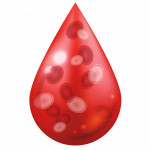HIV transmission between heterosexual men and women is slower than between men who have sex with men, according to a study published in PLoS Pathogens as reported by United Press International.
The study was based on Great Britain’s HIV Drug Resistance Database of viral DNA sequence information from more than 30,000 HIV-positive individuals. According to the article, Scottish researchers examined the virus gene sequences of more than 11,000 positive participants, which represented 40 percent of the straight population in the United Kingdom. Most of these positive heterosexuals were immigrants from sub-Saharan Africa.
Study leader Andrew Leigh Brown, from the University of Edinburgh said in a statement, “The slower dynamics of the heterosexual epidemic thus offer more opportunity for successful intervention, but it is essential that diagnosis is achieved as early as possible.”
The study also found that transmission clusters in straight populations occurred in networks of 10 to 30 people, which was smaller than those found in HIV-positive MSM groups.
Advertisement
Advertisement
Advertisement






Comments
Comments